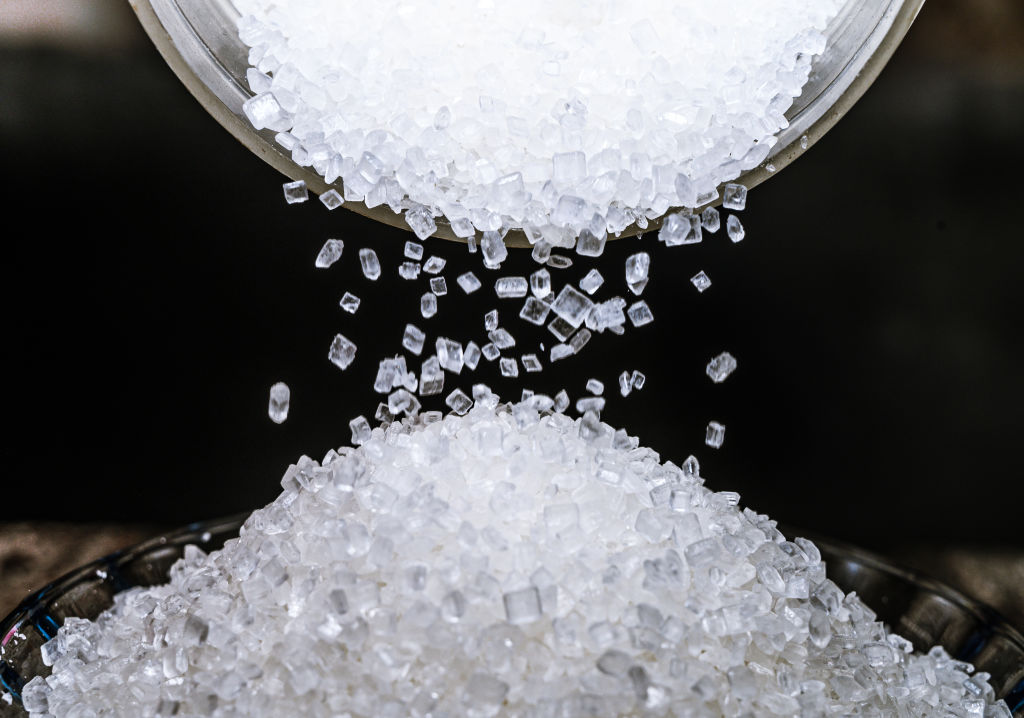South Korea has become a top testing ground for the sweetener allulose, a potential rival to sugar substitutes like stevia that is finding favour among both local food influencers and big domestic food companies, which are ramping up production.
Found naturally in figs, kiwis and other fruits, allulose has been approved by both U.S. and South Korean regulators. It can be found in candies and protein bars in the U.S. but commercialised sweetener products of allulose are mostly sold online or at select grocery stores.
In South Korea, however, it has caught on more widely and is now easily available in supermarkets for less than 10,000 won($7.26) per 700 ml bottle.
That is still pricey at about four times the cost of table sugar, but manufacturers and researchers say it is 70% as sweet as sugar and almost calorie-free.
“It tastes the closest to table sugar,” said Renaud Joly, a French vegan influencer based in Seoul.
But even as top South Korean food and beverage companies Daesang Corp 001680.KS and Samyang Corp 145990.KS invest in new production facilities, health experts warn that more research is needed into the long-term health effects of allulose.
It also has yet to gain widespread approval by regulatory authorities worldwide, and high production costs limit its use as a commercial sweetener.
“Allulose isn’t the first sugar substitute to make headlines for being the ‘best new food product’,” said Elizabeth Traxler, a registered dietician at University Hospitals, a U.S.-based academic medical centre.
It does, however, have slight benefits for weight loss and can be helpful to individuals with diabetes, she added. When consumed in combination with sugars like sucrose, allulose can lower the blood glucose response, a benefit not many other sweeteners can produce.
Samyang said it now sells more than 1,000 metric tons of allulose to retail customers annually, citing sales growth at a double-digit pace since 2020 and business-to-business revenue of more than 10 billion won in 2022.
Earlier this year, it opened a 140 billion won factory that can produce 13,000 tons of allulose annually, more than quadruple its previous output.
The company, which supplies allulose to Coca-Cola Korea Co for a zero-calorie soft drink, said it has been cleared to begin selling its allulose products in Australia and New Zealand later this year.
Market research firm Grand View Research estimates the global market for allulose will grow to more than $500 million by 2030 from about $310 million this year. By comparison, the global market for stevia was more than $514 million in 2023.
But the European Union, Canada and other countries view it as a “novel food” that has yet to be sufficiently assessed for safety.
The World Health Organization last year issued a guideline advising against using non-sugar sweeteners for weight control purposes, citing potential undesirable long-term effects.
Two groups linked to the WHO last year declared the popular sweetener aspartame a “possible carcinogen”, but said it remained safe to consume at already-agreed levels.
University Hospitals dietician Traxler said that, when allulose is consumed in large quantities, possible side effects include gastrointestinal distress such as diarrhoea and bloating.
Samyang’s Head of Specialty Food Ingredients Park Sung-won said the biggest challenge has been making the sweetener affordable and raising consumer awareness, but added: “We believe allulose is a material with potential for the future.”
(Reuters)














